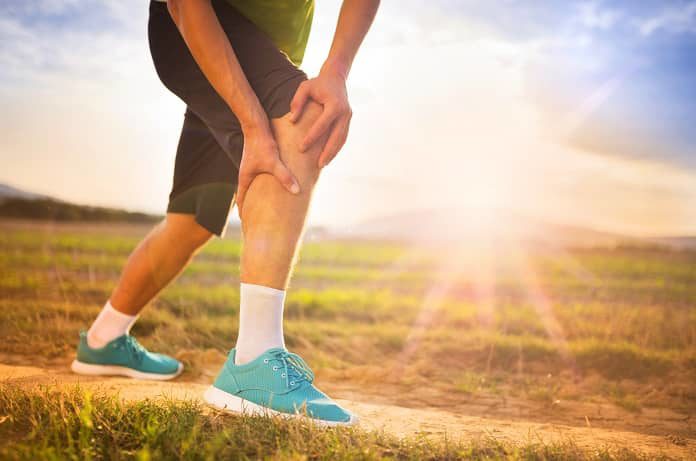Milk protein supplementation following strenuous exercise can decrease muscle fatigue and increase skeletal muscle growth. Researchers set out to find out whether protein intake after exercise increases muscle recovery.
Taxing exercise routines can take a toll on all muscle tissues involved in the movement. Exercise repetitions lead to increased microscopic trauma to skeletal muscle, causing fatigue and soreness post-workout. The soreness and micro tears of the muscle recover over time as the inflammatory response activates within the tissue. Scientists aimed to discover if protein intake, specifically milk protein supplementation, could impact muscle recovery after eccentric exercise. Eccentric movements tend to be the actions that slow the body down and are important for such activities as going downstairs and lowering objects to the ground.
Sports science and biotechnology researchers conducted a double-blind, crossover study of 11 men over eight days. On the day that the exercise program was performed, participants were given either a placebo or milk protein intake (20g) after exercise followed by the same placebo or protein dose every three hours, up to hour 12 of the post workout timeline. In the remaining seven days, the participants consumed a single dose of milk protein or placebo for breakfast. Blood and muscle sampling was performed on each subject pre-experiment to establish baselines for each that would be used for post-experiment comparisons.
The results of the study, published in the British Journal of Nutrition, showed that milk protein concentrate might provide a viable model for rebuilding and maintaining muscle function that has been inflamed by strenuous, eccentric exercise. The subjects in this study were noted to have healthier cardiovascular systems than in previous trials, so although this data is promising, this group’s physical fitness could be a limiting factor to the data. While human bodies have built-in recovery mechanisms to aid in muscle recovery, recuperation can be enhanced by milk protein intake after exercise in addition to proper rest and diet.
Written by Cooper Powers, BSc
Avloniti, Chatzinikolaou, et al. “Protein ingestion preserves proteasome activity during intense aseptic inflammation and facilitates skeletal muscle recovery in humans.” British Journal of Nutrition. 2017;118(3):189-200. doi:10.1017/S0007114517001829



